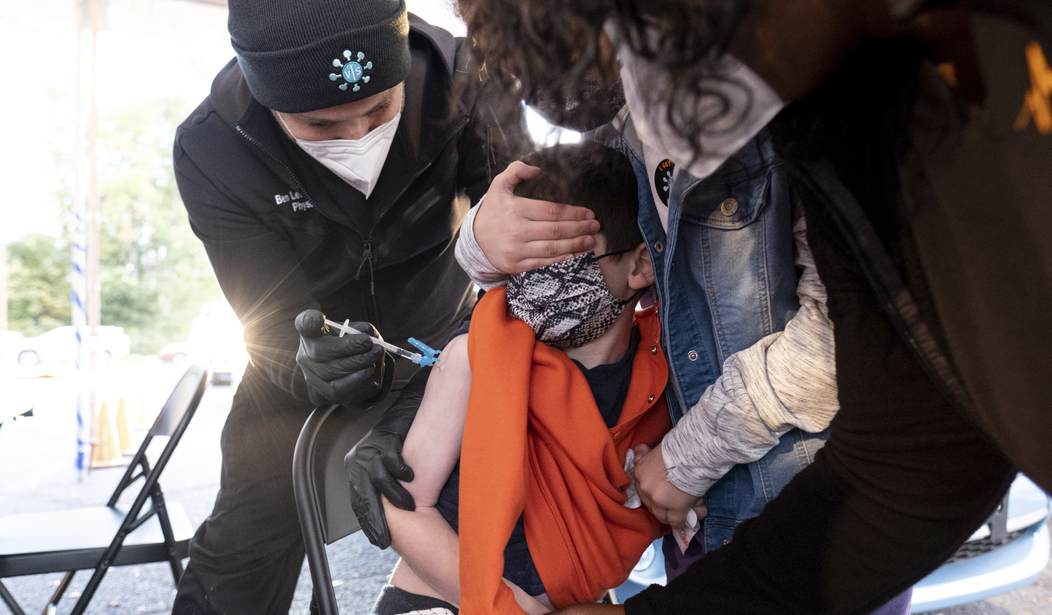Since December 2020, when the first COVID-19 vaccines were approved for emergency use for adults, there was a push for universal vaccination. It didn’t matter if you were in a high-risk group, at lower risk, old, or young, the push was to pump those brand new, untested vaccines on everyone. It didn’t matter that adults who had been vaccinated and even boosted still got the virus or even died from it.
If you didn’t want to get the vaccine because you did your research and found you weren’t in a high-risk group and probably didn’t need it, you were treated like a horrible person, and then, when the FDA decided to approve the vaccines for young kids back in June, you were an even worse person if didn’t want to get your kids vaccinated.
I’ve been pointing out how unnecessary universal vaccination is, particularly for kids. School-age children have a COVID recovery rate of 99.997% — better than their mortality risk from the seasonal flu. Furthermore, unvaccinated children are safer from COVID than even vaccinated adults of any age.
Universally vaccinating kids from COVID didn’t just make no sense at all, but it was also not very safe — and data from the Centers for Disease Control and Prevention (CDC) proves it. It turns out that more than 55% of children aged 6 months to 2 years old had a “systemic reaction” to their first dose of the Pfizer-BioNTech or Moderna COVID-19 vaccine, and nearly 60% had a similar reaction to the second dose of the Moderna vaccine.
The most common systemic reactions were fatigue, fever, irritability, and crying, however, 6% of the children in the study were reported by their parents to have been “unable to perform normal activities after the second dose of either the Pfizer-BioNTech or Moderna vaccine,” according to The Epoch Times.
The CDC gathered the information through an app-based monitoring system called V-Safe between June 18 and August 21.
“Parents of 8,338 children ages 6 months to 2 years who’d received the Moderna vaccine reported information through V-Safe, with 55.7 percent of them reporting a systemic reaction after the first dose, and about 58 percent after the second dose,” The Epoch Times reports. “For the Pfizer vaccine, parents of 4,749 children ages 6 months to 2 years submitted reports showing that 55.8 percent of them had a systemic reaction after the first dose and about 47 percent after the second dose of the vaccine.”
But there were also more serious reactions, labeled as “any health impact.”
After receiving their first dose of the vaccine, about 10% of children aged 6 months to 2 years experienced a “health impact.” After the second dose, slightly more children were affected by the Moderna vaccine, while slightly fewer were from the Pfizer vaccine.
While most of the reactions to the vaccines appeared to be non-serious, some say we shouldn’t assume there won’t be long-term damage.
“That stuff is not considered by the CDC to be very important … It’s assumed that all those side effects go away after a few days, and leave the people perfectly well,” Dr. Meryl Nass told The Epoch Times regarding the fevers and fatigue. “Those reactions may in fact may be harbingers of more serious reactions but nobody to my knowledge has published anything looking at whether these acute local or systemic reactions are indicators of a later problem.”
In addition to the “systemic reactions” and “health impacts,” there have been 220 reports of children and young adults (aged 6 months to 5 years) requiring medical attention after receiving the COVID-19 vaccine that were reported through the Vaccine Adverse Event Reporting System (VAERS), including that of a 2-year-old Arizona boy who received the Pfizer vaccine on July 29 and experienced a “life-threatening episode” the following day.
While some parents who have seen the data are choosing not to vaccinate their kids from COVID, plenty have been convinced through fear that vaccinating their kids from COVID is the right thing to do. But, as health officials continue to insist they are safe, there is always a risk, and parents really need to look at the data and weigh the pros and cons.










